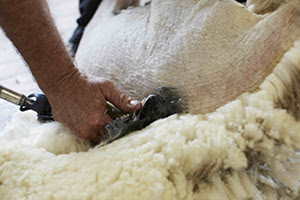
A WOOL industry drugs and alcohol summit in South Australia this week has united the sector around the formation of a workplace policy on the issue.
A draft wool industry drug and alcohol policy developed by a stakeholder reference group was released at the inaugural summit, held at the Arkaba Hotel in Adelaide on Wednesday.
About 80 people attended the summit to hear presentations from several workplace and shearing industry speakers, before breaking into groups to give feedback on the draft policy.
The draft policy raises the option of testing potential workers for alcohol or drugs and random drug testing in workplaces on suspicion of worker impairment or a workplace incident. It also includes clauses on policy breaches, identifying safety risks, dealing with a person impaired by drugs or alcohol and the legal obligations of employers and employees.
Click here to get the latest Sheep Central story links sent to your email inbox.
Shearing Contractors Association of Australia secretary Jason Letchford said the draft policy was “a collaboration and work in progress” and no timeline had been set for its completion. He expected it would need more work to reflect a more consultative rather than accusatory or penalising attitude to drugs and alcohol use.
Mr Letchford said an important concept introduced at the summit, by Alcohol and Drug Foundation national workplace services manager Natasha Jager, was for wool industry workers to be “fit for work.”
“This is more about awareness, it’s about dealing with the person so they get help if they need help.
“It’s about observing a person’s behaviour and their ability to perform their duties, not trying to be a CSI detective and work out whether they are on drugs or not on drugs – it’s about working with the person,” Mr Letchford said.
Mr Letchford said summit delegates were told by and New Zealand shearing contractor Ewan Mackenzie there were costs involved in implementing a workplace policy on drugs and alcohol, but it created a better workforce — “a workforce that cares.”
The summit had raised awareness about drugs and alcohol use in the industry, and there was now a strong desire among industry stakeholders to resolve the problem with a consultative approach and not dictatorial or “finger-pointing”, Mr Letchford said.
“It has given them hope that they can achieve a workplace where they’ve got full teams of workers who are not impaired by the use of drugs or alcohol.
“There is a huge desire now among delegates and industry representatives to help resolve the problem.”
The wool industry stakeholder reference group’s members include representatives from the SCAA, the National Farmers’ Federation, the Australian Workers’ Union, WoolProducers Australia, the Australian Wool Exchange and the Western Australian Shearing Industry Association.
WoolProducers Australia chief executive officer Jo Hall said the reference group will reconvene to consider the feedback of summit delegates on the draft policy. She said WPA did not support mandatory drug testing in shearing sheds because it potentially created a raft of other issues.
“Contractors were talking about how they could approach this and there was the suggestion that you could do pre-employment testing.
“I could see that working, much better than a random test in a shed.”
Ms Hall said working within the reference group had been a process in compromise that had worked well. She said the draft policy needed some “further tweaking”, was intended as a guidance document for industry, but would enable stakeholders to be proactive on drugs and alcohol use.
“Just by having something like that, a. it starts the conservation, and b. it provides guidance on what to do in that type of situation.”

Anyone working with any animals in any workplace environment should not only be drug and alcohol-tested, but should also have a clearance similar to that gained by undergoing a ‘working-with-children’ check. This includes all employees of production facilities and slaughterhouses/abattoirs.